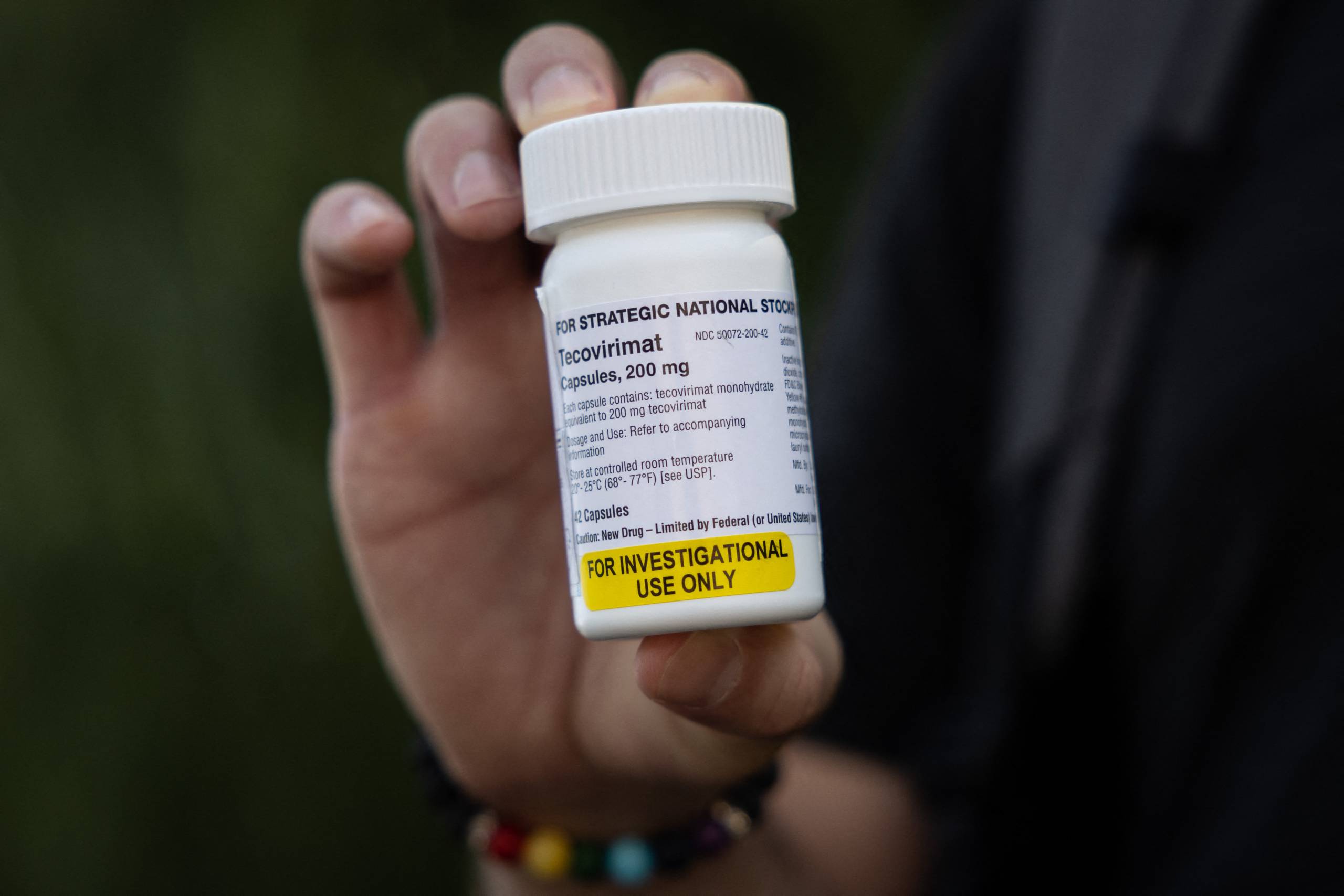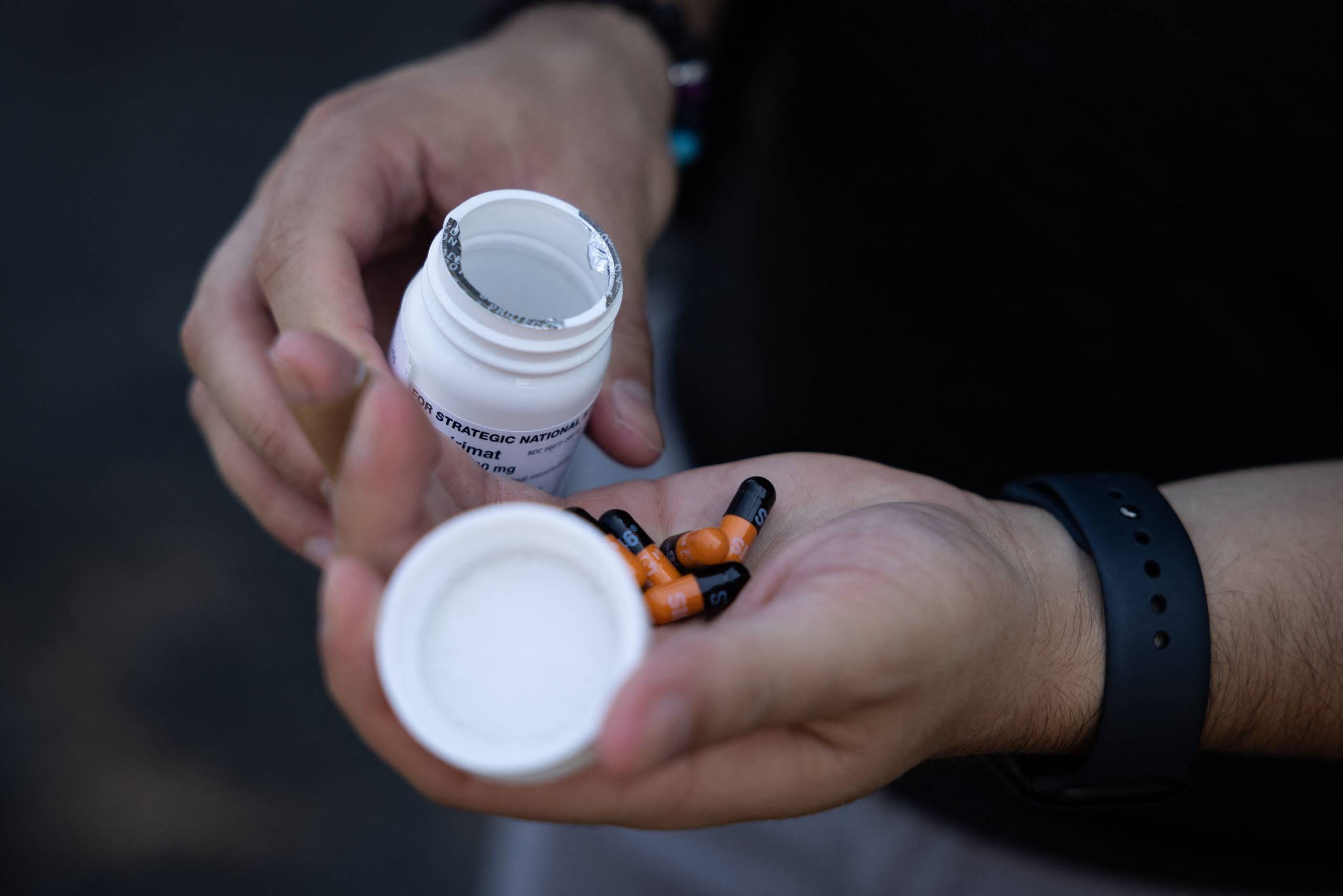Where Can I Find a Monkeypox Vaccine Near Me? - KQED
If I'm eligible, where can I find a monkeypox vaccine?
Supplies of the monkeypox vaccine in the Bay Area are distributed directly from the California Dept. of Public Health, who get their supply from the federal government. And right now, availability is still limited and demand is high.
If you're experiencing the symptoms of monkeypox, or you've been informed you could have been exposed to monkeypox, you should contact a health care provider right away. A health care provider can (hopefully) help you navigate this process, talk about any additional risk factors you might have and also tell you whether you're eligible for some of the monkeypox treatments currently available.
If you have health insurance, reach out to your provider as soon as you can.
Kaiser Permanente has received monkeypox vaccines and is currently offering them only to Kaiser members. You can make an appointment by calling the health provider's direct monkeypox vaccination line at (415) 833-9999. A staff member will take your call and ask whether you are experiencing symptoms or were recently in contact with someone with a confirmed case.
UCSF is also offering vaccines to those who are currently eligible — and you do not need to be a UCSF patient or have insurance to schedule an appointment. You can visit the UCSF monkeypox vaccines webpage for instructions on how to make an appointment using UCSF's MyChart portal. Vaccines are administered at the 3333 California Street site in San Francisco.
If you don't have health insurance, contact your county's public health department to ask for their guidance:
The San Francisco Department of Public Health recommends that if you live in the city and you don't have a provider, or have difficulty scheduling an appointment, you can be seen at SF City Clinic at 7th Street (628-217-6600) or at Strut at 470 Castro Street (415-581-1600).
Currently, there is only one walk-in vaccination site that doesn't require an appointment in San Francisco, located at Zuckerberg San Francisco General (ZSFG) Learning Center at 1001 Potrero Avenue. Please note that this walk-in clinic has frequently been closed at short notice due to lack of supply, so it's important to check that the site is still open before you visit. (You can usually find the latest updates about the ZSFG clinic's status on the San Francisco Department of Public Health's Twitter feed.)
If you're visiting the ZFSG site on a day it's open, look for Building 30; the clinic will be on the second floor. As of July 20, it will be open 8 a.m. to noon and offer appointments to patients identified as high-risk. A limited number of drop-in slots will also be available while supplies last.
The San Francisco AIDS Foundation has a waitlist to receive the vaccine with Magnet, the organization's sexual health clinic. You can call (415) 581-1600 or access the waitlist here.
Steamworks Bathhouse in Berkeley has also been hosting a pop-up monkeypox vaccination clinic, as vaccine supply from the City of Berkeley allows. Their next walk-in clinic is 12 p.m. on August 3. Check Steamworks' Instagram account for updates.
If I got a smallpox vaccine years ago, am I protected from monkeypox?
Routine vaccination against smallpox in the U.S. ended in 1972. But if you received a smallpox vaccine before that time, you may be wondering whether it now affords you any protection against monkeypox, given that the monkeypox virus is related to the smallpox virus (although it's generally less severe and far less contagious than smallpox).
Dr. Susan Philip, San Francisco's health officer, says that being vaccinated against smallpox "would have some cross-protection against monkeypox," and that "it does seem that people who have been vaccinated against smallpox in the past have partial protection, so they may not have as severe a case of monkeypox."
But if you got your smallpox vaccine pre-1972, would you still have some immunity against monkeypox? Right now, that still seems uncertain. Andrea McCollum, the poxvirus epidemiology team lead in the CDC's division of high-consequence pathogens and pathology, says "this is something we really haven't teased out in individuals who had [smallpox] vaccination 50 years prior, 60 years prior."
Philip stresses that since a historic smallpox vaccine "may not be full protection" against monkeypox, the San Francisco Department of Public Health and the CDC recommend that even if you got a smallpox vaccine as a kid, you should definitely seek out a monkeypox vaccine if you're exposed to monkeypox, to get "the fullest protection possible."

What other forms of treatment are available?
The monkeypox vaccine can act as a sort of treatment, but only when someone receives it shortly after exposure, says Dr. Peter Chin-Hong, an infectious disease specialist at UCSF.
"If you got a vaccine shortly after exposure — some people think within four days — it can impact and stop you from getting disease, even though you might have been exposed to an infection," he says. "If you get the vaccine within 14 days of exposure, even though you might get the rash or disease, it will reduce your symptoms."
But the monkeypox vaccine is not the only treatment currently available. Some physicians are administering the drug TPOXX (also known as Tecovirimat or ST-246) to patients experiencing severe monkeypox symptoms. Tecovirimat is usually a two-week treatment and can be administered either through a capsule or an intravenous injection. The drug works by making it harder for the virus to infect new cells, therefore limiting the infection growth.
"Most people will get better on their own, but some people will require treatment," says Dr. Chin-Hong of UCSF. Those considered for treatment include immunocompromised people, pregnant people and children younger than 8 years old.
People who don't have those particular risk factors but still develop severe monkeypox also can receive treatment, Chin-Hong says. This includes those who develop extensive oral disease, as that makes it very difficult to eat and drink. "It's like having a bunch of ulcers in your mouth," he says. Those who develop the disease extensively in the rectal area or near the eyes also can receive treatment.

TPOXX has only been approved by the Food and Drug Administration to treat smallpox infections. The CDC, however, does allow for physicians to prescribe TPOXX for monkeypox treatment through a process called "expanded access investigational new drug protocol." A physician will need to submit an application to the FDA and the patient must be willing to sign an informed consent form.
San Francisco's Dr. Philip says city health officials are partnering with health providers to "expand access for people throughout the city, whether they're affiliated with the health system or not" but adds that it is up to the CDC to streamline the process for physicians to request TPOXX.
Something else patients should consider is talking to their physician about any pain they may be feeling, and where. Some monkeypox patients have described the pain from the rashes as "inescapable."
There are many options available that can alleviate, or at least reduce, the pain you may be feeling if you have monkeypox. Physicians can prescribe treatment that can respond to the pain associated with lesions, which may show up on a patient's face, arms, mouth, or genital or rectal area, says UCSF's Dr. Chin-Hong.
"Treatment is not only about vaccines and drugs. Treatment is also about what specific symptoms the patient's having," he says. "So make sure that you ask your health care professional to help you because there may be things that can help make you feel less pain."
Comments
Post a Comment